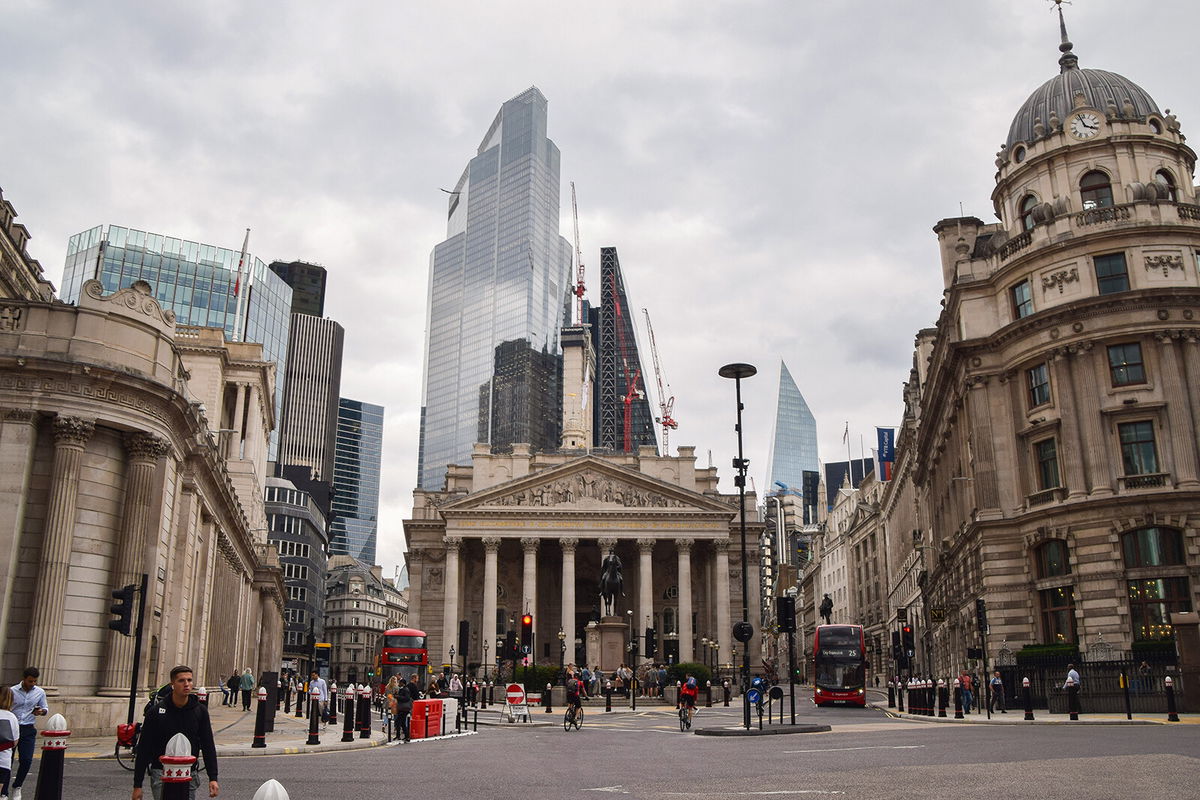Bank of England hikes interest rates by half a point for second straight month

The Bank of England announced its seventh interest rate hike in less than a year on September 22
By Mark Thompson, CNN Business
The Bank of England announced its seventh interest rate hike in less than a year on Thursday, despite forecasting a recession, as it battles the highest level of inflation of any G7 economy.
The central bank repeated last month’s hike of half a percentage point, taking rates to 2.25% from 1.75%. It said it expected inflation to peak next month at 11%, lower than it previously expected because of government intervention to subsidize energy bills.
“Should the outlook suggest more persistent inflationary pressures, including from stronger demand, the [monetary policy] committee will respond forcefully, as necessary,” it added.
With Thursday’s move, the Bank of England has already raised borrowing costs for business and consumers back to levels last seen in 2008 in a bid to take the heat out of inflation that continues to hover just below 10%.
Like most of its major peers, the central bank is having to weigh the need to prevent price rises getting out of hand and the damage caused by aggressive rake hikes.
Some economists believe the UK economy is already in a recession, and the Bank of England shares that view. It forecast UK GDP to decline by 0.1% in the third quarter, partly as a result of the extra public holiday for the Queen’s funeral. GDP fell by that much in the second quarter.
The bank’s policymakers were split on how aggressive to be this month, with three members arguing in favor of a three-quarter point hike. But they voted unanimously to reduce the bank’s stock of UK government bonds by £80 billion over the next 12 months in another move to tighten monetary policy.
Its deliberations are being complicated by the weak pound, which fell to a new 37-year low against the US dollar on Wednesday. A weaker currency means the United Kingdom has to pay more for imported energy and food, adding to inflationary pressures in the economy.
The US Federal Reserve on Wednesday announced an historic third consecutive three-quarter percentage point rise in interest rates, adding further wind to the dollar’s sails. Benchmark US rates now stand at between 3% and 3.25%.
The European Central Bank also broke new ground with its decision earlier this month to hike eurozone interest rates from 0% to 0.75%. The Swiss National Bank on Thursday hiked rates by three quarters of a percentage point, taking them out of negative territory to 0.5%.
‘Unsustainable’ government borrowing
Further clouding the outlook for the Bank of England is a likely big increase in UK government spending to slash the sky-high energy bills of businesses and households.
UK finance minister Kwasi Kwarteng will outline the cost of the subsidy program on Friday, but analysts have already estimated the bill could reach £150 billion ($170 billion) over the next two years.
Combined with tax cuts promised by new Prime Minister Liz Truss, that could keep inflation high over the next few years and send UK government borrowing soaring.
In a report published Wednesday, the independent Institute for Fiscal Studies warned that the government risked setting UK debt “on an unsustainable path.”
“At around 3.5% of national income, borrowing would be not far off double the 1.9% of national income that it averaged over the 60 years prior to the global financial crisis, when growth prospects were considerably higher,” it said.
The-CNN-Wire
™ & © 2022 Cable News Network, Inc., a Warner Bros. Discovery Company. All rights reserved.